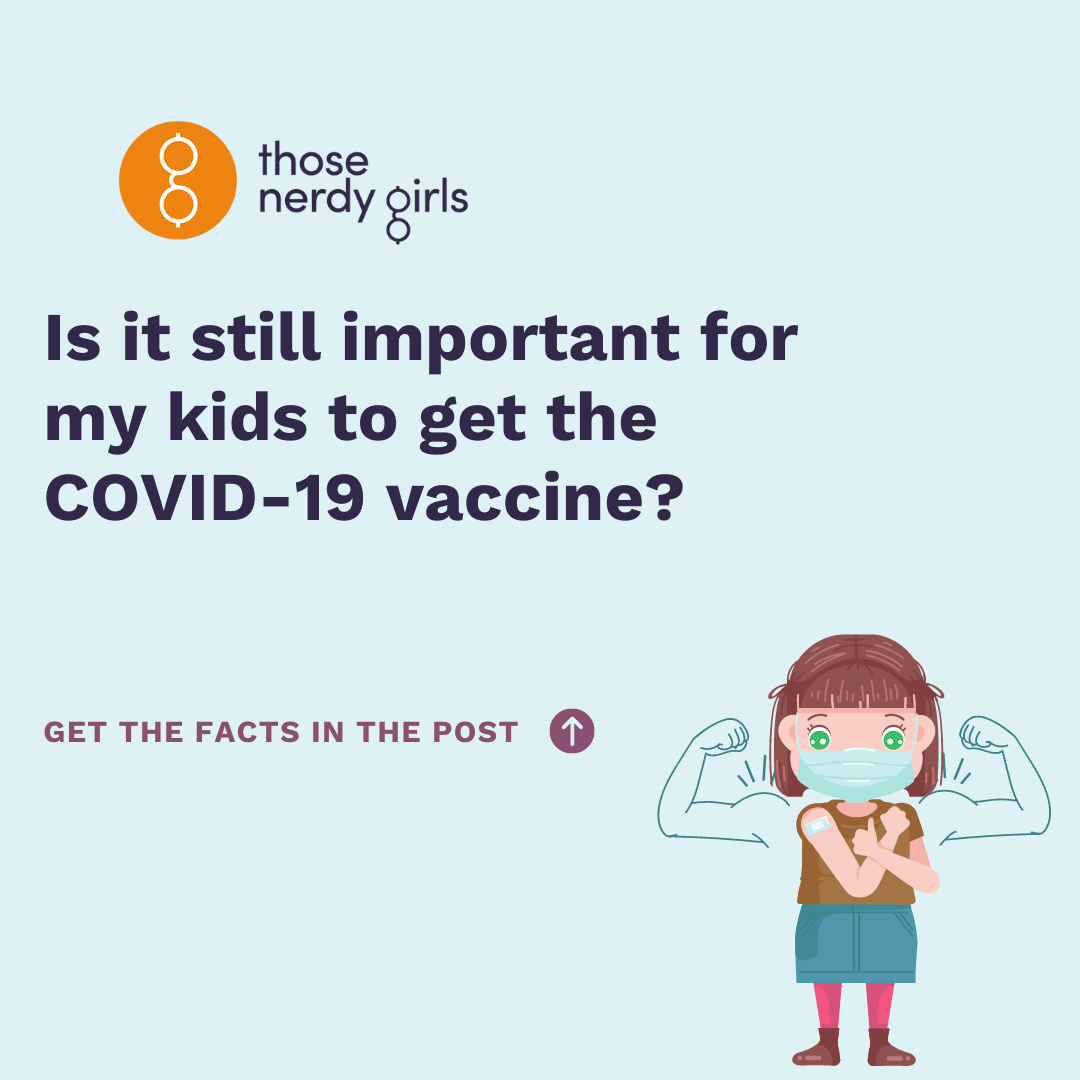New real-world data shows the COVID-19 vaccine protects against infection and *dramatically* reduces the risk of hospitalization in children aged 5 to 11 (see link below).
It felt like we’d waited FOREVER, but in the 3 months since vaccines for under-5s were approved, only 8% of this group in the US had their first shot.
(*Note that these rates vary significantly from state to state, ranging from 2% to 32%).
About 38% of US children ages 5-11 have received at least one shot (31% have completed 2 doses), leaving much room for improvement. Among children, vaccine uptake is currently highest among 12-17 year olds, with 67% receiving at least one dose (58% receiving two doses).
We know that many children have already caught COVID-19 infection, especially with the Omicron waves. Parents may wonder if vaccination is still necessary or helpful after infection?
The good news is that if your child has already had COVID-19 (and was lucky enough not to have a severe outcome), that previous infection *protects* them from being reinfected and drastically reduces the risk of hospitalization if your child comes back becomes infected. But there are still good reasons to get vaccinated after a previous infection, as “hybrid immunity” offers immunity benefits beyond infection or vaccination alone.
In the most recent study, previously infected children who were also vaccinated had the lowest risk of infection during the follow-up period – lower than infected but unvaccinated children. As with vaccines, immunity to infection seems to wane after a few months. To minimize your child’s overall number of infections, it’s still a good idea to get vaccinated after a previous infection.
Since we don’t know how repeated hits with COVID affect long-term health, it’s prudent to reduce this total. Not only will your child get sick less often, but the risks of transmission to the rest of your family (and society) will also be lower. In the longer term, we anticipate an annual booster cycle more similar to flu shots.
How long should you wait after an infection with the vaccine? There is currently no hard and fast rule, but immunity to re-infection seems to wane around 3-4 months after infection. Waiting at least 3 months can help your immune system learn from past infection while still getting a boost from the vaccine (if your antibodies are already very high from a recent infection, the boost is unlikely to provide additional protection) .
Children over the age of 12 who have completed their primary series are also eligible for the new updated bivalent COVID vaccines even if they have already received a booster shot. The updated vaccination is recommended for those who have been at least 2 months since their last vaccination (but waiting 3-4 months may be best to prolong immunity).
The new shots are better matched to the currently circulating Omicron variants and should therefore provide better protection against infection (until the next variant emerges, of course).
The updated vaccines for 5-11 year olds are expected to be approved very soon, so stay tuned if your child is in that age range and ready for their booster.
Although the percentage is small, over 1.4 million children under the age of 5 have already received the COVID vaccine in the United States, as have 10.8 million children ages 5 to 11. From this experience we know that the vaccines are extremely safe. A COVID-19 infection, on the other hand, is much more risky.
This is important because a decision to *not* vaccinate your child is still an active decision. This is not a “natural” choice, but a choice to expose your child to a serious infection without protection.
We know that many of our readers have already vaccinated their children (and vaccinated themselves). Now is the time to spread the word as trusted ambassadors in your own communities and networks – share your experiences and intentions to get vaccinated when you have the opportunity. Let’s bring childhood vaccination rates into the next COVID winter!
Love,
Those nerdy girls
——————————————————-
Additional links:
“Covid vaccination rates among US children under five lagged despite effectiveness”
dr Jeremy Faust provides an excellent breakdown of the statistics for a poor COVID outcome versus low risk of vaccine-associated myocarditis
Current statistics on childhood vaccination from the American Academy of Pediatrics
Recent study on vaccine efficacy in 5-11 year olds in the New England Journal of Medicine
Link to the original Dear Pandemic Facebook post
#important #children #COVID19 #vaccine


Leave a Comment